Filter by
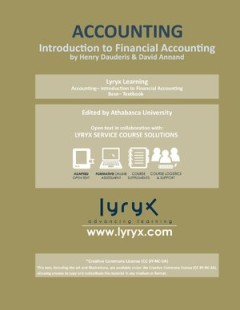
Accounting Introduction to Financial Accounting
The form of this book is completely new to the market. This is an open text supported by Lyryx Service Course SoluOons (L.S.C.S.) products and services
- Edition
- -
- ISBN/ISSN
- -
- Collation
- -
- Series Title
- -
- Call Number
- 650

AIDA-CMK: Multi-Algorithm Optimization Kernel Applied to Analog IC Sizing
This work addresses the research and development of an innovative optimization kernel applied to analog integrated circuit (IC) design. Particularly, this works describes the modifications inside the AIDA Framework, an electronic design automation framework fully developed by at the Integrated Circuits Group-LX of the Instituto de Telecomunicações, Lisbon. It focusses on AIDA-CMK, by enhancin…
- Edition
- Ed. 1
- ISBN/ISSN
- 978-3-319-15955-3
- Collation
- XI, 64
- Series Title
- SpringerBriefs in Applied Sciences and Technology
- Call Number
- 005.642 LOU a
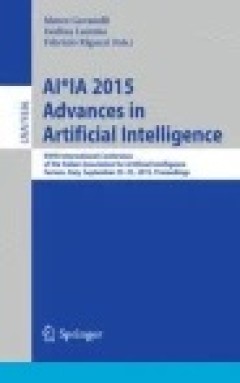
AI*IA 2015 Advances in Artificial Intelligence: XIVth International Conferenc…
This book constitutes the refereed proceedings of the 14th International Conference of the Italian Association for Artificial Intelligence, A*IA 2015, held in Ferrara, Italy, in September 2015. The 35 full papers presented were carefully reviewed and selected from 44 submissions. The papers are organized in topical sections on swarm intelligence and genetic algorithms; computer vision; multi…
- Edition
- Ed. 1
- ISBN/ISSN
- 978-3-319-24309-2
- Collation
- XIV, 480
- Series Title
- Lecture Notes in Computer Science
- Call Number
- 005.642 ART a
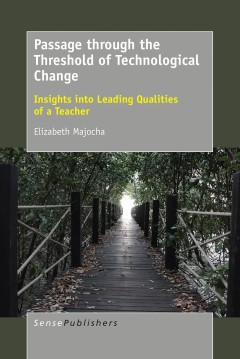
Passage through the Threshold of Technological Change : Insights into Leading…
Technology is becoming entrenched in schools’ daily operations and classrooms. The evolution of information communication technology (ICT) is changing teachers’ delivery of content, their interactions with students, and their management of information. Because ICT places new, unfamiliar demands on preparation time, it challenges teachers to strengthen their qualities to lead others and to h…
- Edition
- -
- ISBN/ISSN
- 978-94-6300-028-4
- Collation
- XII, 100 halaman
- Series Title
- -
- Call Number
- 371.1 MAJ p
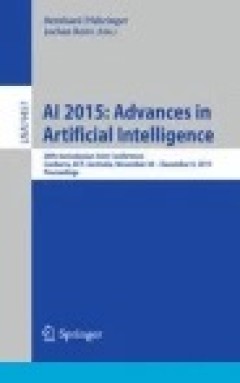
AI 2015: Advances in Artificial Intelligence: 28th Australasian Joint Confere…
This book constitutes the refereed proceedings of the 28th Australasian Joint Conference on Artificial Intelligence, AI 2015, held in Canberra, Australia, in November/December 2015. The 39 full papers and 18 short papers presented were carefully reviewed and selected from 102 submissions.
- Edition
- Ed. 1
- ISBN/ISSN
- 978-3-319-26350-2
- Collation
- XVII, 652
- Series Title
- Lecture Notes in Computer Science
- Call Number
- 005.642 ART a
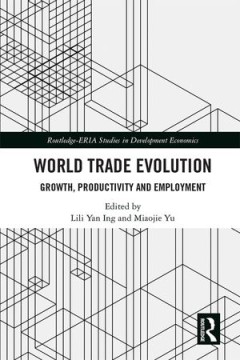
World Trade Evolution : Growth, Productivity and Employment
The book provides theoretical and empirical evidence on how world trade evolves, how trade affects resource allocation, how trade competition affects productivity, how China shock affects world trade and how trade affects large and small countries. It is a useful reference which focuses on new approaches to international trade by looking into country-specific as well as firm-product level-speci…
- Edition
- -
- ISBN/ISSN
- 9781351061537
- Collation
- -
- Series Title
- -
- Call Number
- 650
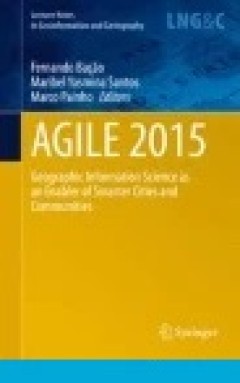
AGILE 2015: Geographic Information Science as an Enabler of Smarter Cities an…
This is a book is a collection of articles that will be submitted as full papers to the AGILE annual international conference. These papers go through a rigorous review process and report original and unpublished fundamental scientific research. Those published cover significant research in the domain of geographic information science systems. This year the focus is on geographic information sc…
- Edition
- Ed. 1
- ISBN/ISSN
- 978-3-319-16787-9
- Collation
- XIII, 362
- Series Title
- Lecture Notes in Geoinformation and Cartography
- Call Number
- 621.39 AGI a

Party Communication in Routine Times of Politics : Issue Dynamics, Party Comp…
Simona Bevern addresses the questions what and why political parties communicate in the time between elections, focusing on the dynamic rise and fall of policy issues. Despite the central role of political parties and the alleged importance of communication, only few scholars have taken a closer look at the content and dynamics of parties’ communication in routine times of politics. In this s…
- Edition
- -
- ISBN/ISSN
- 978-3-658-09205-4
- Collation
- XXI, 233 halaman
- Series Title
- -
- Call Number
- 324.2 BEV p

AETA 2015: Recent Advances in Electrical Engineering and Related Sciences
This proceeding book consists of 10 topical areas of selected papers like: telecommunication, power systems, robotics, control system, renewable energy, power electronics, computer science and more. All selected papers represent interesting ideas and state of the art overview. Readers will find interesting papers of those areas about design and implement of dynamic positioning control system fo…
- Edition
- Ed. 1
- ISBN/ISSN
- 978-3-319-27247-4
- Collation
- XIV, 917
- Series Title
- Lecture Notes in Electrical Engineering
- Call Number
- 621.381 AET a
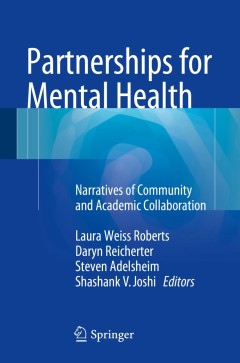
Partnerships for Mental Health : Narratives of Community and Academic Collabo…
This unique title richly tells the stories of partnership and collaboration. The narrative voice of each chapter derives from the people who tell their story -- immigrants, survivors of torture, mental health experts, urban people, rural people, teachers, doctors, attorneys, students and international leaders. These authors provide emotionally powerful tales that move, affect and encourage read…
- Edition
- -
- ISBN/ISSN
- 978-3-319-18884-3
- Collation
- XXVIII, 210
- Series Title
- -
- Call Number
- 362.2 PAR
 Computer Science, Information & General Works
Computer Science, Information & General Works  Philosophy & Psychology
Philosophy & Psychology  Religion
Religion  Social Sciences
Social Sciences  Language
Language  Pure Science
Pure Science  Applied Sciences
Applied Sciences  Art & Recreation
Art & Recreation  Literature
Literature  History & Geography
History & Geography